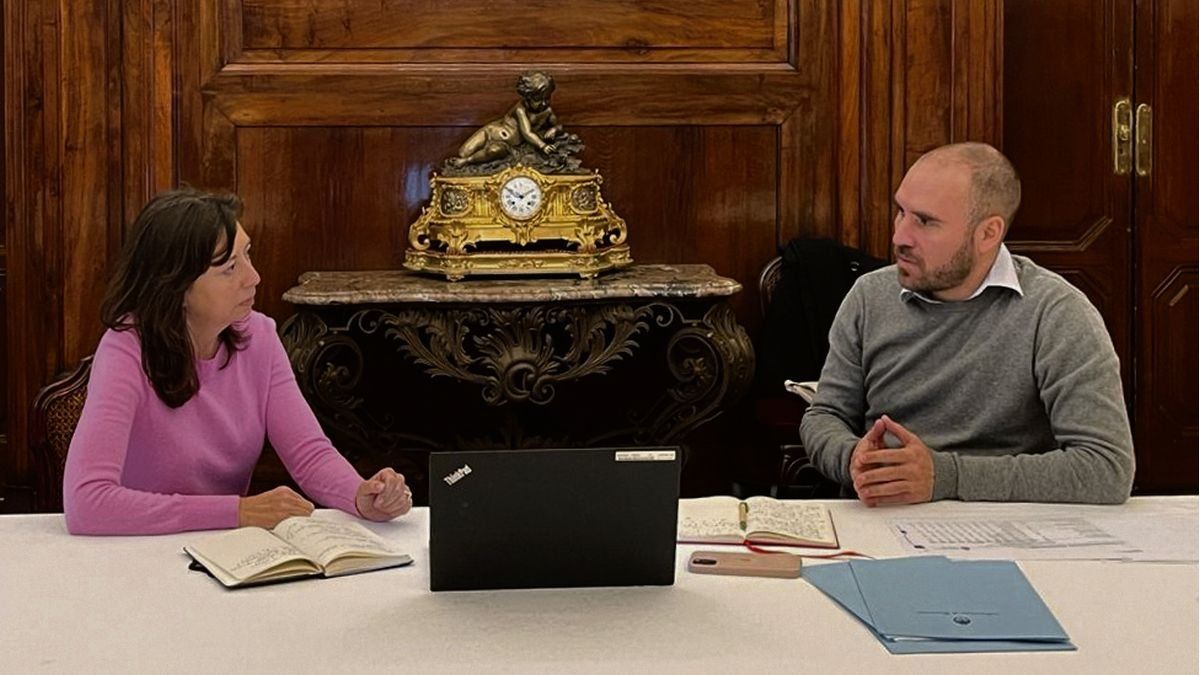The most important data (but there are also others that are not far behind) is that both President Alberto Fernández and Martín Guzmán have once again gathered all their proposals and, according to what Ámbito learned from a senior source in the Argentine government, these initiatives seem to have gained, in the last hours, a certain relative weight in the framework of the discussion.
To be precise, In the Government they see that the G20 communiqué could have eroded the obstinacy of the credit agency’s bureaucracy towards Argentina and part of that qualitative change could have begun to be noticed yesterday. That would explain the long negotiation time yesterday in Rome, that is, so many instances with the aim of advancing the agreement.
Yesterday, after participating in the COP26 summit in Glasgow, Scotland, the president spoke with Minister Guzmán who, still in Rome until today, spoke by phone. The head of the Economy portfolio closed a negotiation day with Julie Kozack, the deputy director for the Western Hemisphere and shared with the president his satisfaction with the intensity of the joint work.
As anticipated Ambit During yesterday afternoon, it was almost 11 hours followed by which the Secretary for Strategic Affairs Gustavo Beliz also participated, and, for zoom, the head of the mission for Argentina, Luis Cubeddu and the director for the Southern Cone before the IMF , Sergio Chodos. Each had their technical segment throughout the day and participated in different conversations.
Although the nature of the meeting was technical, Beliz’s participation gave it a different, political framework.
Georgieva’s go-ahead
Apart from the new vigor that the long conversation between Argentina and the organization could take, part of the dynamics that took place yesterday, was able to surprisingly incorporate at the work table several points that were discussed a long time ago between the parties but that, perhaps , had not been taken into account by the Fund to model the new agreement or, at least, to extend the negotiation as long as necessary.
The Government thinks that it must show, first of all, that it does not want to default. For this, it has paid US $ 2.47 billion to the agency in the year and yesterday it made a new payment. $ 1.9 billion more remains for the next few weeks.
“If we wanted to default, we would not pay everything we have been paying,” said a source. However, there is no security in the Government that Kristalina Georgieva wants to completely loosen the harshness of its position, so as this media could know, the granting of a waiver or “dispensation” for not falling into default is also considered as a final possibility (until the negotiation can advance) fulfillment of the payment due in March, which decompresses not only the government’s plight, but also the IMF itself.
In the same way, a standstill agreement could operate, an agreement between the debtor and the creditor in which the debtor agrees not to default and the creditors are obliged not to take actions or require payments to the debtor, until the completion of the process of negotiation and restructuring.
It should be remembered that the countries that make up the G20 also asked the IMF last Sunday to establish a new Resilience and Sustainability Fund to “provide affordable financing” in the long term to low and middle income countries. According to Ámbito, the government has made progress and has already obtained the approval of Georgieva so that, if a new 10-year Extended Fund Facility agreement is successful, it incorporates a clause that allows the country, when the opportunity exists, to change lines credit, to one with lower costs and longer term, such as “resilience”. This clause is called “pari-passu”, and the novelty is that Argentina could benefit.
Until now, Argentina has sought throughout the negotiations with the Fund to achieve an Extended Facilities program, that is, a 10-year loan repayment term and conditionalities related to structural reforms. After the G20 request for the creation of the new scaffolding, the possibilities to continue negotiating a better agreement grow. Also, the chance to take more time without going into default.
Source From: Ambito
David William is a talented author who has made a name for himself in the world of writing. He is a professional author who writes on a wide range of topics, from general interest to opinion news. David is currently working as a writer at 24 hours worlds where he brings his unique perspective and in-depth research to his articles, making them both informative and engaging.




